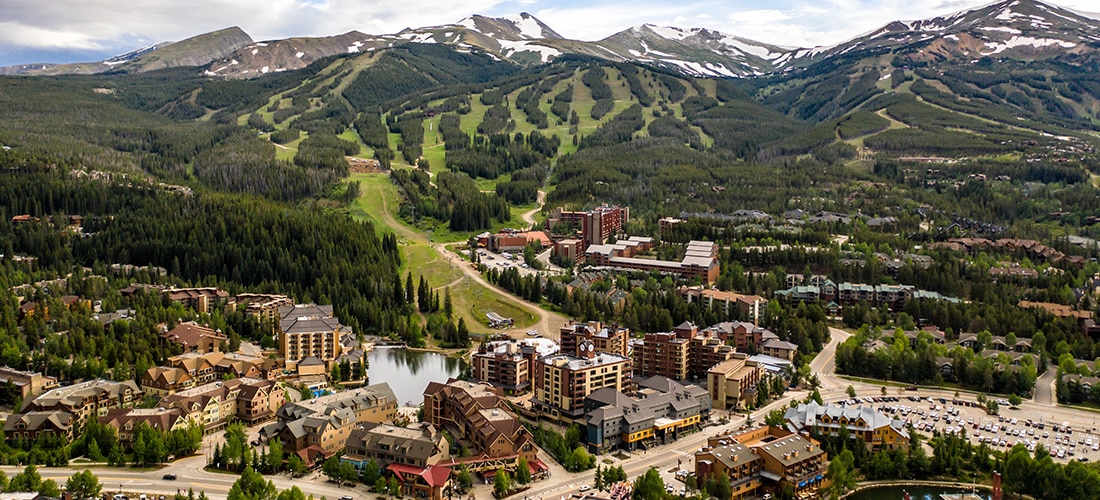
This article is part of an ongoing series of reports on the state of short-term rentals in the U.S. You can view our other reports here.
From national parks to ski resorts to a world-renowned amphitheater, the state of Colorado has a plethora of attractions for tourism. As the short-term rental (STR) market has become an increasingly popular option for travelers over the past decade, local governments have been tasked with navigating the complexities of regulating the industry. Effectively managing STRs means striking the right balance between owners and other members of the community.
Here’s a look at how various municipalities in Colorado have tailored their STR approach to fit the unique needs of their jurisdictions.
Boulder County
In Boulder County, officials are mulling a number of changes to STRs operating in unincorporated areas of the county. Some of these changes include redefining what qualifies as an STR vs. vacation rental, requiring operators to notify all adjacent property owners of their STR permit upon approval, capping the number of available licenses, requiring all parking to be on-site, and limiting occupancies to eight.
Lakewood
Years in the making, the city of Lakewood passed legislation in March 2023 that requires all STRs to be licensed through the city. Property owners are only allowed one permit, and the STR must be considered the owner’s primary residence.
“We’ve had these operating and what we’ve learned is we didn’t have a licensing process for them. The closest thing we had was for beds and breakfast, and these aren’t those,” Lakewood Mayor Adam Paul told a local news station.
Steamboat Springs
In Steamboat Springs, a major ski resort destination, a new STR tax of 9 percent went into effect at the beginning of 2023. In the first month, it generated $1.3 million for the city. The revenue will be used for affordable housing projects.
A Guide to Short-Term Rentals for Local Governments
Estes Park
In Estes Park, an impact tax for STRs of $1,390 annually per property was established in an attempt to boost funding for local workforce housing. In Larimer County, which includes Estes Park, new rules passed earlier this year enable permit transfers between family and non-family members (with limits), a requirement that STRs have a buffer zone of 500 or 250 feet depending on zone, a 500-foot buffer for park areas, and a requirement that property managers are located within an hour of the STR, among other new regulations.
Breckenridge
Breckenridge is a popular tourist destination in Summit County, home to a number of mountain towns on this list. The county passed regulations earlier this year that cap the number of bookings in many neighborhoods to 35 annually. The county also introduced a “Lease to Locals” program that financially incentivized STR operators in Breckenridge and unincorporated areas to offer their rentals to local workers.
Locally, the city has also made additional moves to manage STRs. In addition to a BOLT payment, STR operators are also required to pay a regulatory fee of $756 per studio/bedroom per year, as well as restricting the number of STRs.

Colorado Springs
Officials in Colorado Springs passed regulations that prevent non-owner occupied properties from being used as STRs in single-family zoning districts. In other zones, non-owner-occupied STRs must have a 500-foot buffer from other STR properties in the area. Owner-occupied STRs are allowed to operate within single-family zones.
Jefferson County
Officials in Jefferson County are working on new rules for managing STRs in response to community concerns, including wildfire danger and quality of life issues. Although the county does have STR legislation already in place, the city estimates there are hundreds of STRs operating without the required permits, underscoring the need for better data and tracking tools.
Among the potential changes that are being considered: limiting the number of STRs in foothill areas, prohibiting guests from possessing anything that could potentially cause a wildfire, limiting permits to individuals vs. businesses, and prohibiting parties.
Salida
In Salida, part of Chaffee County, the city requires an annual fee for rentals, as well as an additional occupational lodging tax of $15 per bedroom per night. Applications for STR licenses in the Commercial District can be submitted at any time. The city also restricts new STR licenses to those who own the property and reside within the county.
Eagle County
Like Summit County, Eagle County also has a “Lease to Locals” program that offers property owners a stipend if they choose to rent their STR to the local workforce. The payment ranges from $2,000 up to $12,000, depending on the lease terms.
Effective STR management requires the right tools
Tracking and managing STRs effectively begins with choosing the right tools for the job. The GovOS short-term rental platform streamlines management tasks like tracking, compliance enforcement, and tax collection – easing the burden for staff. Learn how the team at GovOS can help your local government simplify STR management and book a demo today.








